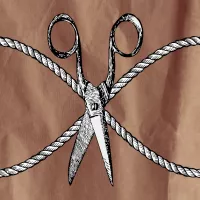9 Things You Can Do When You Don’t Love Your Job
Research shows that 85% of employees are unhappy with their jobs. If you are part of that 85%, here is what you can do.

It’s the worst feeling in the world. The idea of getting up every morning and going to a job you hate. But wait, you are not alone. A global poll conducted by Gallup shows that only 15% of employees like their job and the rest 85% are unhappy with what they do for a major part of the day.
The worst part is, even if you know you don't like your job, you most probably can't do anything about it. Leaving a job and getting a new one is not always possible for everyone, especially in a tough economy like the one we are in. If anything, most of us are juggling two jobs to make ends meet.
So, what are your choices? Limited, but you don’t have to hate what you do. There are ways to cope with the aversion in a healthier way. In this article, we outline a few ways to get through a job you probably hate.
Find the Problem.
Instead of dwelling in the extreme misery of our jobs and replaying it in our heads repeatedly, take a step back and try to look at yourself and the job objectively. Sometimes we are so emotionally charged about something we don’t like that we are unable to look at the situation objectively. We are so focused on how we feel that we seldom try to find the root cause. Asking questions to yourself can be helpful:
- Why do I really hate my job?
- Am I being overly dramatic about it?
- Do I like working with the people in my office?
- Is the work I am doing meaningful?
- What do I like about this job?
Do not just think about it, take some time out to write about it. Categorize the problems at work into minor and major. Now major problems are extreme, like bullying, not getting paid, or any mistreatment from co-workers. If you are facing any of these major problems, you need to talk to HR (Human Resources) or a legal advisor. These serious issues at work are not okay. If you are concerned about your safety at work, it's not okay. You need to contact the authorities at once.
What this exercise will do is give you the reality. It will chart a path towards a possible truce with your job. Especially if you have a lot of minor issues with it.
Loss of identity and self can manifest in many ways throughout our lifetime. Here is why it happens and what you can do about it.
lifeism.coFace the tough conversations.
Many times, once we identify the problems, the next step is to have a conversation with someone. A tough one. Seek help from others in the company to help you navigate through the situations. For instance, if the biggest issue in your current role is not liking your direct manager, then talk to your colleagues about changing your department or working under someone else.
If you are bogged down with work with no one to help, then have that tough conversation with your manager. Let them know that you are having a tough time keeping up with the workload and it needs more fair distribution.
Most of the time, when reasoned well, the company responds positively. The company also is interested in keeping talented employees and will try and help you as much as possible. But unless you take the first step and talk about it, there is no way your employer is going to know what you are struggling with. Have an honest conversation with your employer as early as possible and request a change.
Look for the benefits.
No matter where you work, there is always something good there. A kind colleague, good insurance, work-life balance, good money, a larger purpose, good manager, opportunity to learn on the job, etc. Many times, we cannot control the situation externally. Many pieces of your job are not in your hands, but being grateful for it is something you have control over.
Even when you are not getting paid enough, try to be grateful for what you are getting right now, it is meeting some of your needs. If you don’t like your manager, be grateful to your colleagues with whom you can share your experiences.
How a daily gratitude practice can change your life. Success and personal growth begin with a life filled with gratitude.
lifeism.coIf you are constantly riddled with negativity about your job, then make a list of things you are grateful for at work. Look at that list whenever negative thoughts arise. Go through it even when you are stressed. It will help you refocus from the stress to something positive and good.
Remember that it's temporary.
If you think about it, everything in life is temporary. You should start quoting Shakespeare in your mind, “this too, shall pass”. Doing this will reduce the tension from the current moment and remind you that everything in life is temporary. Removing the finality from an issue makes you realize that this is not forever. This is temporary and it’s okay. This will help you reduce the stress around your job and focus on the task at hand instead.
Look at it from an unfamiliar perspective.
There may not be much you can control at your workplace, but you can control your perspective and your thoughts. Instead of looking at the job as a dreadful thing overall, try to reframe it. More than 2.7 billion people globally earn less than $2 a day, and 1 billion people barely make $1 daily. That means billions of people are looking for a job that you are doing right now. They are struggling to find something, anything, that will help them feed their families. While this approach does not solve your problem, it gives you a larger perspective. When we think about our jobs in this way, we change our outlook to that of gratitude vs. just dislike.
Reading is a privilege. Often, we take this gift for granted. Here are some quotes and images for book lovers to appreciate the magic of reading.
lifeism.coCreate a life outside work.
Working for 8 to 9 hours all day long can be mentally exhausting. A wonderful way of not letting your job take over your life is to create a meaningful life outside of work. An active social life, good company of friends, a nice walk in the park, reading a book on the bench, studying something you are passionate about, and starting a side hustle, can all help relieve some stress. If anything, you are motivated to get up in the morning, and finish working, so you can do what feels fulfilling.
Take care of your health.
When we spend long hours doing what we don’t like to do, it takes an emotional and physical toll on us. As a result, we eat junk food, don’t get any exercise, and in general, tend to neglect our physical and emotional wellbeing. Unless your job requires being on your toes and hard labor, staying fit should become a priority. Be it doing jump ropes, going for a walk, a short run, or lifting some weights, working out is essential. Workouts also produce oxytocin and endorphins – happy hormones. When most of your day is spent feeling anxious, depressed, or disliked, moments of happy hormones tide you over. You look at life more positively overall.
If you were not taking care of your health till now, doing so will make you less moody, and improve your self-esteem, and sleep. Do something good for your mind and your body. Take good care of yourself.
A complete guide to mirror work by Louise Hay and how it can lead us down the path of experiencing true self-love.
lifeism.coImprove your performance.
We know, sound counterintuitive, right? But often, when we are focused on how our job feels we tend to forget that our jobs are more than our feelings. When we are waddling in negativity, we tend to overlook our performance at work. Since we feel undervalued at work, we undervalue our work as well and subconsciously tend to slack in our jobs. It may not be gross irresponsibility, but we tend to take a back seat and only do what we are told. We stop taking initiative and think about our performance. If you’ve been feeling negative about your job for some time, it's possible that your manager and colleagues have noticed it and things have just gotten worse after that. Don’t let that happen. It’s a vicious cycle.
Even if this is not the case, improving your performance is an advantage. When you are in the position to change your job, you will need references from your current colleagues. You are more likely to get those if the people at work are happy with your performance.
If your performance improves, you are more likely to get the opportunity to either move up or move to another team. If you are contributing positively to the company, most companies do not want to lose you. They want to keep you around.
Make a strategy for a new job.
If you are sure that this job is just not for you then it's time to plan the next step in your career. You want to polish that resume and start looking for a new role that excites you. If this is the decision you’ve taken, make sure that you are professionally going about this. Start building your resume with a modern resume template as this will save you time, give you a professionally-looking template, and give you an edge over other applicants.
Don’t apply to other jobs during work hours and try to do this on your own time and laptop. If you lack the skills to move to a new role you want, take a class and learn that skill before you start the application process.
The biggest mistake that one could make is switching the job too early. Going from one job you don’t like to a new one that you hate is a mistake many professionals make. They are in such a hurry to get out of their current misery that they do not do the due diligence to ensure that the new job is really what they want. And the worst part is, if the new job is equally terrible, an immediate switch may not be possible.
So, if you are switching jobs, take the time to ensure that you are indeed getting into something that you want. Do the due diligence and talk to your future colleagues. Understand the roles and responsibilities of the new role before committing to it.
Concluding thoughts.
Before we go, we’d like you to consider this. Every job has elements that you will not like in them. Even if you are an entrepreneur, you will have to do things each day that you probably do not enjoy. There will always be parts of the role that are too challenging. Look at those aspects of the role as opportunities for growth instead of reasons to hate the job. If you have been looking for the perfect job for years, hopping from one role to another, we invite you to consider that it does not exist. Maybe you need to create the perfect role and not find it.
We wish you luck in your endeavor – be it sticking to a job you are not happy about or finding a new one. We hope you find the satisfaction you are looking for.
If you’ve experienced living through a job you don't like, let us know in the comments what worked for you. What kept you going when things got tough?












Comments
Thanks for this article. I needed to read this. I am a teacher and I do not hate being a teacher but there are things that pushes me into a direction of leaving but I am too scared... Perhaps for many different reasons. I am still unsure and not really emotionally ready to leave.
Relatable article in today's world. Loved it